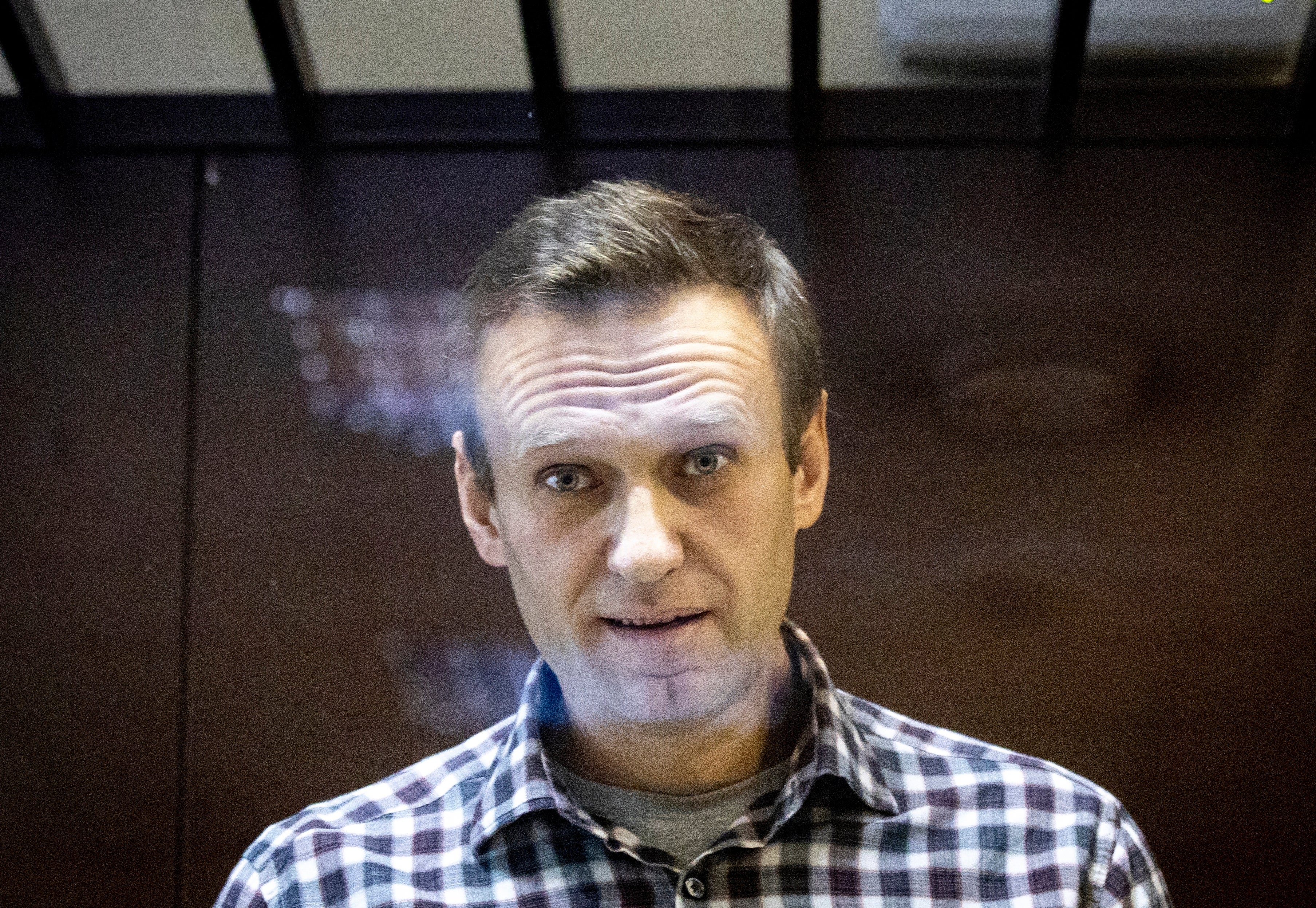Putin critic Navalny loses weight, blames harsh prison
Imprisoned Russian opposition leader Alexei Navalny has lost a substantial amount of weight in custody, his organization says

Your support helps us to tell the story
From reproductive rights to climate change to Big Tech, The Independent is on the ground when the story is developing. Whether it's investigating the financials of Elon Musk's pro-Trump PAC or producing our latest documentary, 'The A Word', which shines a light on the American women fighting for reproductive rights, we know how important it is to parse out the facts from the messaging.
At such a critical moment in US history, we need reporters on the ground. Your donation allows us to keep sending journalists to speak to both sides of the story.
The Independent is trusted by Americans across the entire political spectrum. And unlike many other quality news outlets, we choose not to lock Americans out of our reporting and analysis with paywalls. We believe quality journalism should be available to everyone, paid for by those who can afford it.
Your support makes all the difference.Imprisoned Russian opposition leader Alexei Navalny has lost a substantial amount of weight in custody, his organization said Thursday, a day after the well-known government critic called a hunger strike to protest what he called poor medical care.
A post Thursday on Navalny's channel in the Telegram messaging app said he weighed 93 kilograms (204 pounds) when he arrived at the prison last month and now is at 85 kilograms (187 pounds).
The statement said he blames the weight loss primarily on a harsh prison regime in which he is awakened eight times every night.
Navalny also is complaining of severe back pains that have spread to one leg and says his other leg is numb. Prison authorities have not provided proper medicine or allowed his doctor to visit him, he said Wednesday when announcing he was going on a hunger strike.
The 44-year-old Navalny, Russian President Vladimir Putin’s most outspoken domestic opponent, was arrested in January upon his return from Germany where he spent five months recovering from a nerve-agent poisoning that he blames on the Kremlin Russian authorities have rejected the accusation.
Last month, Navalny was sentenced to 2 1/2 years in prison for violating the terms of his probation during his convalescence in Germany. The sentence stems from a 2014 embezzlement conviction that Navalny has rejected as fabricated — and which the European Сourt of Human Rights has ruled to be unlawful.
Navalny was moved this month from a Moscow jail to a penal colony in the Vladimir region, 85 kilometers (50 miles) east of the Russian capital. The facility called IK-2 stands out among Russian penitentiaries for its particularly strict rules for inmates, which include standing at attention for hours.
Navalny’s nerve-agent poisoning and conviction have further strained Russia’s ties with the United States and the European Union, which sank to post-Cold War lows after Moscow’s 2014 annexation of Ukraine’s Crimea, its meddling in the 2016 U.S. presidential election, hacking attacks and other actions.
Although Navalny's doctor has not been able to see him, his organization said the prison on Thursday gave access to a team from the Kremlin-funded satellite TV channel RT led by Maria Butina, who was convicted of acting as an unregistered foreign agent in the United States and served 18 months in prison.
It said Butina declared the prison to be one of Russia's best and most comfortable, after which Navalny denounced her as a “parasite” in front of other inmates.
RT did not immediately respond to a request for comment.
Subscribe to Independent Premium to bookmark this article
Want to bookmark your favourite articles and stories to read or reference later? Start your Independent Premium subscription today.